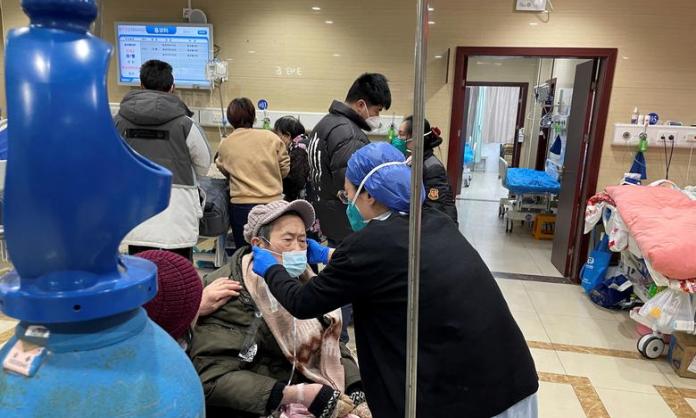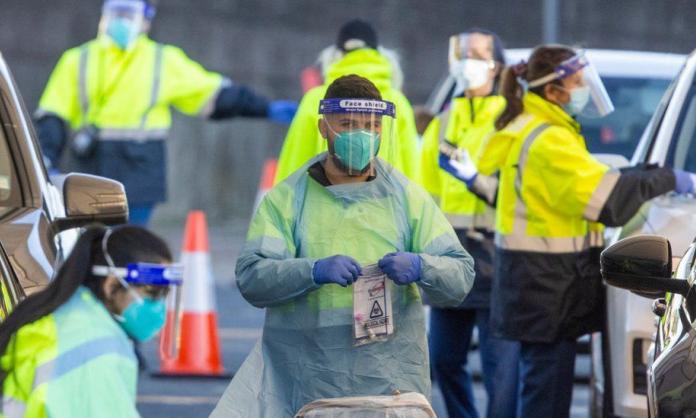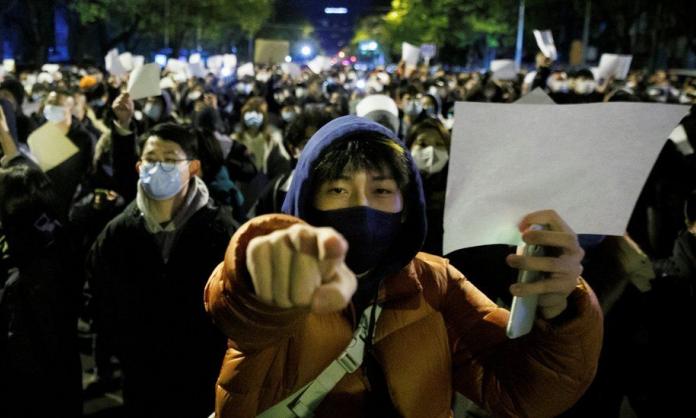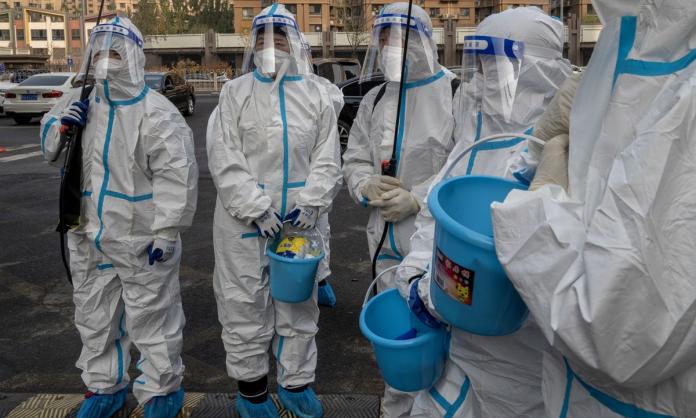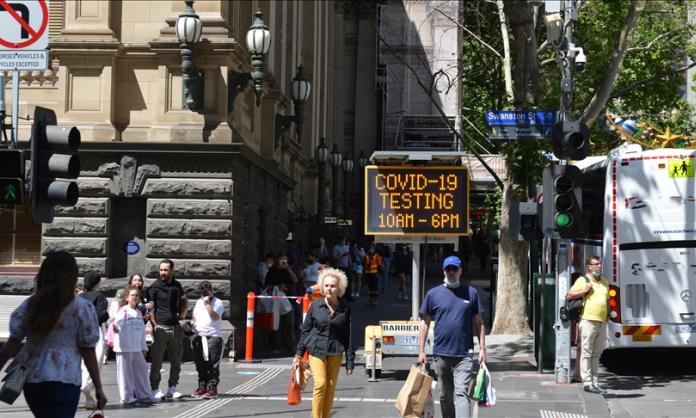A few weeks ago, my grandmother died in Jamaica. We weren’t at all close—I only met her a couple of times in my life—and yet, I feel sad. She had Alzheimer’s but was diagnosed with COVID-19 a couple of weeks prior to her death, along with her carers, my uncle and his wife. As a result, she deteriorated much more quickly than expected.
My mum has made the difficult decision not to leave London to go to her mother’s funeral and be with her siblings as they grieve. She had to make this decision because UK prime minister Boris Johnson and his Tory government have shown over and over again that they don’t care about ordinary people when it comes to dealing with this pandemic. Johnson was happy to “let the bodies pile high” in order to prioritise profits.
Opening up and letting the virus rip—so that there is now an average of 31,000 cases per day in the UK—means that my mother would have to get a COVID-19 test before she left London, quarantine when she arrived in Jamaica, get another test before she left Jamaica and test again when she arrived back in London. All of these tests reportedly cost more than £100 each. She would also be at risk of contracting the virus while in Jamaica, and she is currently only partially vaccinated. So, she decided not to travel. She was robbed of the opportunity to see her mother again before she died, and can’t even say goodbye now she has passed.
This is what reopening too soon looks like for ordinary people. Had my grandmother been in New South Wales, she would be one of the deaths that are so easily dismissed in the now defunct 11am press conferences—“an 85-year-old woman with underlying health conditions”. The humanity behind these descriptions is lost, and the condolences they send ring hollow. According to Dr David Berger writing in the Sydney Morning Herald, “one in two Australians has at least one chronic condition”, but the authorities continue to try to normalise these deaths as if they don’t matter.
They’d be dead soon anyway, right? Their deaths are reducing the burden on the overwhelmed health service, right? But no thought is given to the family and friends of this “dead wood” who have lost their loved ones, or to the people who have died alone, scared and in pain, or to the health workers who are forced to make impossible choices about who to give precious ventilators to or whose hand to hold as they die. Our elderly people are not dead wood. They deserve to spend their retirement safely, enjoying time with grandchildren or pursuing hobbies, not dying a premature death from a disease they should never have had.
For Victorian premier Dan Andrews, the hundreds of people predicted to die in Victoria in the coming months are likewise expendable. Their lives are apparently a price worth paying to get out of lockdown and back to business. Lockdowns are hard, human beings aren’t wired to be so disconnected for so long. I’m a therapist—I know the impact of lockdowns on people’s mental health. But don’t be swayed for a moment by the government’s rhetoric on mental health—they just want to use it as an excuse to open up and further risk our health. We can see how much they really care about those with mental health issues if we look at the limited funding for services, or the closure, with a week’s notice, of a young people’s critical psychiatric care ward at St Vincent’s Hospital in Sydney. And it’s as if the mental health impacts of those thousands of deaths, or the mental health of the health workers who will be dealing with the trauma of working through this disaster for years to come, simply don’t exist.
But do you know what would help people’s mental health during lockdown? Being paid to stay home, and knowing there was a job waiting for them when things reopened. And being paid to take time off to get tested, vaccinated and so on. It’s living in a system that prioritises profit over health, even in a pandemic, that gives people anxiety and depression. It really is that simple. Australia’s Mental Health Think Tank came to the same conclusion in a recently published policy paper.
And so, as with everything under capitalism, it comes down to class—who is essential in our society? Jeff Bezos jetting off into space has shown how inessential he is. But his retirement is safe. The supermarket workers of today are the people with underlying health conditions of tomorrow. Class inequality means that it is essential workers who are likely to develop chronic health conditions and will therefore be more at risk in the health crises of the future. They are ordinary, working-class people who keep the rest of us alive and yet are some of the worst paid in our society. To us they are necessary, to the bosses they are expendable.
So yes, I’m sad that my grandmother died. I’m sad for my mum and her brothers, but I’m also angry. I’m angry that the people who run society think it is acceptable to throw their hands in the air and say there’s nothing we can do, that thousands of people are just going to die when they don’t have to. Theoretically, modern capitalism should be well-placed to deal with a pandemic—the resources available would be more than enough to combat it if there was the political will to do so. But no, Gina Reinhardt and others like her who have increased their wealth during the crisis just haven’t made quite enough money yet. According to the Guardian, “the world’s billionaires did ‘extremely well’ during the pandemic, growing their already-huge fortunes to a record high of $10.2tn”.
On the day my grandmother died, there were 511 new COVID-19 cases in Jamaica, the youngest of which was just 3 days old. The youngest COVID-19 death that day was a 19-year-old woman. These are the kinds of people that will get sick and die of the virus in New South Wales and Victoria if we reopen too soon. It doesn’t have to be this way. We need to fight for every single life. We need to aim for elimination, even as irresponsible governments make this increasingly difficult. It is not impossible. The thing missing is the political will. Now is the time for us to fight back.





